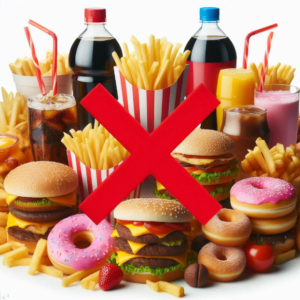Explore the Foods That Disrupt Sleep Quality and Trigger Insomnia
A variety of foods can significantly disturb your sleep patterns, leading to increased difficulty in achieving the restorative rest your body requires. So, which specific foods are known to negatively impact sleep quality? In this comprehensive article, we will delve into some of the most problematic offenders regarding diet and its effects on insomnia.
Experiencing insomnia means struggling to not only fall asleep but also maintain sleep throughout the night. The repercussions of sleep deprivation can leave you feeling exhausted during the day, hindering your ability to concentrate effectively. This lack of quality rest can adversely influence your mood, resilience, and overall immunity. Consequently, it may pave the way for various health concerns and illnesses. While numerous factors contribute to insomnia, your diet is a significant player in this complex equation.
Understanding the Impact of Caffeinated Beverages on Sleep
Caffeine, a naturally occurring psychoactive compound found in items such as coffee, tea, and numerous energy drinks, can profoundly affect your ability to sleep. As a stimulant, caffeine not only complicates falling asleep initially but more critically, it disrupts your sleep by causing awakenings throughout the night. Additionally, caffeine serves as a diuretic, increasing the frequency of your trips to the toilet at night, further interrupting your sleep cycle. Since caffeine can take several hours to metabolise and exit your body, it is advisable to refrain from consuming it after midday to ensure a more restful night. 
The Connection Between Caffeine Consumption and Anxiety
Another critical aspect to consider is the relationship between caffeine and anxiety. Caffeine stimulates the central nervous system, and while many individuals may feel a fleeting surge of energy after consuming a caffeinated drink, others may instead experience feelings of restlessness and jitters. This heightened state of anxiety can exacerbate insomnia symptoms. Research indicates that individuals suffering from chronic anxiety frequently encounter insomnia symptoms, which include trouble both falling asleep and staying asleep through the night. This creates a vicious cycle of caffeine-driven anxiety that perpetuates ongoing sleep deprivation.
It is crucial for those with anxiety to monitor their caffeine consumption closely to mitigate additional sleep disturbances. Interestingly, studies suggest that women generally consume slightly less coffee than men but experience a more pronounced increase in blood pressure from caffeine. The connection between elevated blood pressure and insomnia further highlights a compelling reason to eliminate caffeine from your diet.
Identifying Caffeinated Foods That May Disrupt Sleep
You might be surprised to learn that certain foods also contain caffeine. Items such as those containing cocoa or chocolate (particularly dark chocolate) include caffeine due to the presence of the related compound, theobromine. Furthermore, many over-the-counter pain medications also utilise caffeine as a key ingredient. For those battling insomnia, it is advisable to consume such medications before midday and opt for caffeine-free alternatives later in the day. While moderate caffeine consumption has been associated with various health benefits, it is vital to be aware of your overall daily intake to avoid adverse effects like heightened anxiety and sleep disruption. Consider substituting that late-night cup of cocoa for a soothing malted milk drink instead.
Another interesting factor is the potential influence of genetics on how individuals respond to caffeine. Variations in certain genes can significantly determine how even minimal caffeine consumption can affect your ability to sleep.
Your genetic predisposition to caffeine sensitivity is significant and should not be overlooked. If you find it challenging to attain restful sleep after consuming even a small amount of caffeine, it may be beneficial to explore whether you possess a genetic predisposition that affects your response to this stimulant.
It is also worth noting that if you struggle with insomnia, you may feel tempted to consume coffee or energy drinks during the day to remain alert and focused. Unfortunately, this strategy is counterproductive and can further disrupt your nighttime sleep quality.
If you are grappling with insomnia, it is advisable to completely avoid caffeine during the evening hours, or potentially altogether.
The Effects of Spicy Foods on Sleep Patterns
While no direct correlation exists between spicy foods and insomnia, these foods can indirectly contribute to sleep disturbances. This happens because they may trigger heartburn and indigestion, both of which are commonly associated with difficulties in falling asleep.
If you are already experiencing heartburn or indigestion, lying down can exacerbate these issues. When you recline, stomach acid can rise into the throat, causing discomfort and pain as it irritates the sensitive lining of the oesophagus. Interestingly, consuming spicy foods, such as those seasoned with ginger, chilli, or pepper, can elevate your body's temperature. Proper sleep hygiene suggests that cooler temperatures are more conducive to quality sleep, making anything that raises your body temperature a poor choice for those dealing with insomnia.
The Potential for Spicy Foods to Induce Nightmares
Anecdotal evidence suggests that consuming spicy foods may influence sleep quality, leading to nightmares and unusual dreams. Although scientific research has yet to substantiate this claim, there is evidence indicating that elevated body temperatures, such as those experienced during fever, can result in disturbing dreams. While this connection is tenuous, it may hold some validity. If you enjoy spicy cuisine but find yourself plagued by unsettling dreams, it might be wise to reconsider your evening meal choices!
Considering all the points mentioned, if you suffer from insomnia, it may be prudent to avoid consuming spicy foods within three hours of bedtime.
The Sleep-Disrupting Effects of Fatty Foods
Picture this scenario: you’ve enjoyed a fantastic night out, the bars are closing, and you decide to indulge in some delicious chips or perhaps a greasy kebab. While such a meal may be tempting, especially after a few drinks, consuming a high-fat meal close to bedtime is not advisable. Similar to spicy foods, meals rich in fats, particularly saturated fats, can impede your ability to achieve quality sleep.
As you prepare for bed, your digestive system naturally slows down. Your body is designed to digest food during daylight hours, not while you sleep. Consequently, the absence of digestive enzymes and the sluggish nature of digestion at night can lead to indigestion. This discomfort is further aggravated by lying down, as gravity does not assist in moving food through your gut. Therefore, eating fatty foods shortly before bedtime can result in restlessness or awakenings due to discomfort in the stomach and gut.
Moreover, the time it takes for you to fall asleep, the overall quality of your sleep, and the restorative benefits derived from sleep can all be negatively affected by consuming fatty foods close to bedtime. Unfortunately, this effect can be even more pronounced in women!
A study has indicated that the metabolism of fatty foods may inhibit the release of melatonin, the crucial sleep hormone. This complex biological process involves the enzyme P-elF2α operating within cells.
The key takeaway here is that if you experience insomnia, it is best to avoid fatty foods near bedtime, and ideally eliminate them entirely from your evening meals.
The Adverse Effects of Sugar on Sleep Quality
Throughout the night, it is typical for individuals to abstain from eating, allowing the digestive system time to rest and recover. During this period, enzymes and hormones employed for digestion during the day are dismantled, effectively resetting your gut for the following day.
Why You Should Steer Clear of Sugary Foods in the Evening
For most individuals, the body maintains sufficient energy reserves in the form of fat, enabling it to sustain itself for several hours without food. However, consuming a high-sugar or high-glycaemic meal during the evening can trigger a sudden energy spike, leaving you feeling overly stimulated, or ‘wired.'
The rapid influx of sugar into the bloodstream, quickly followed by a subsequent crash, can lead to feelings of hunger. This can create difficulties in getting to sleep, as going to bed hungry is particularly undesirable, especially for those struggling with insomnia. The desire to eat something else can exacerbate the issue of undigested food lingering in the gut at bedtime, resulting in indigestion and heartburn, similar to the effects of consuming fatty foods.
Many individuals enjoy a warm milky drink before sleep. Should this be part of your routine, it is advisable to refrain from adding sugar, as it has been associated with negatively influencing the duration of your sleep.
Consuming sugary foods before bedtime may lead to restless sleep and unpleasant dreams. If you desire sweet dreams, it is wise to avoid sugar in the hours leading up to sleep.
If you find it difficult to sleep, it may not have crossed your mind that your dietary choices can significantly influence your sleep quality. While several foods can contribute to insomnia, caffeine, fat, sugar, and spices are the primary culprits. With this newfound understanding of the foods that affect sleep, you can take proactive steps to mitigate your struggles with insomnia.
For further insights on enhancing sleep quality, you may find this article beneficial.
References
The Link Between Caffeine and Insomnia
How Processed Carbs Impact Your Sleep
The Relationship Between Food and Sleep Disturbances
The Article: Is Food Sabotaging Your Sleep? Change Your Diet to Improve Sleep appeared first on https://janestevensnutrition.com

